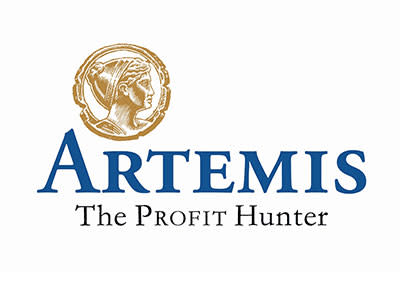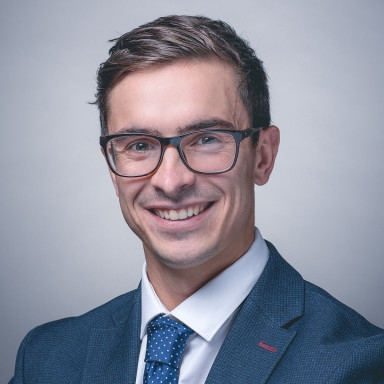Cormac Weldon has over 20 years’ experience of investing in the US
He uses a clear, disciplined investment approach, which has served the fund well since launch
We think this is a great way to invest in smaller companies with high growth potential in one of the world’s most innovative markets
This fund features on our Wealth Shortlist of funds chosen by our analysts for their long-term performance potential
How it fits in a portfolio
We think the Artemis US Smaller Companies fund is a great way to invest in smaller companies with high growth potential in the US, one of the world's most innovative markets.
The fund aims to deliver long-term growth by investing in smaller companies based in the US. Smaller businesses are often among the most innovative and offer lots of growth potential, but they're higher risk than their larger counterparts.
We think the fund could add diversification to a portfolio with little invested in the US, or could work well alongside other US funds focused on larger companies.
Manager
Cormac Weldon leads the US equity team at Artemis and has been manager of the fund since launch in October 2014. He joined the company from Columbia Threadneedle, where he was head of the North America team. He has plenty of experience investing in the US market, having managed funds investing there since 2001, and is a manager we rate highly.
Weldon has the support of a high-quality team of investors around him too, with five dedicated US investors at his disposal. Many of the team moved across from Columbia Threadneedle to join Artemis at the same time as Weldon, so they’ve worked together for a long time. They all follow the same investment process and are specialists in their respective sectors.
In September 2022, Olivia Micklem became co-manager of the fund. Micklem has 15 years’ industry experience, beginning at Columbia Threadneedle as a graduate in 2007. She then joined the US Equity team as an analyst, covering Consumer Staples. Micklem followed Weldon to Artemis in 2014 as an analyst, covering the Consumer Staples and Healthcare sectors. While Micklem is now a named co-manager, the fund continues to be run in the same way, with Weldon remaining the final decision maker.
Process
Weldon looks to invest in companies that he thinks have a 2:1 ratio of upside potential versus downside risk from the current market price. He does this by identifying what really drives the company. His team then spend time modelling what could happen to its profitability and growth over time, as they are likely to have the greatest impact on its valuation in the future. He then builds the portfolio with these ratios in mind, with the companies where upside potential significantly outweighs the downside risk likely to justify larger position sizes in the fund.
Regularly meeting company management is important to Weldon and his team. They think this is one of the best ways to deepen their understanding of the business model and assess the quality of the management team.
Weldon also considers how the US economy is performing to identify sectors that are benefiting from trends, as well as the areas that are finding things tough. This can help him decide how much to invest in a sector, although he won't invest 10% more or less than its weight in the Russell 2000 index. Investments in individual companies are also limited so their weight in the fund isn’t too different from the benchmark. In practice though the fund and benchmark will look different as the fund only invests in 40-60 companies out of the thousands that make up the index. Weldon believes the sector and stock level limits provide ample freedom to reflect his convictions while ensuring a good balance of investments. Holding a smaller number of investments can increase risk, as each has a larger impact on performance.
Recently, Weldon made some adjustments to the fund. Heading into 2025, he anticipated that smaller companies would perform well, driven by President Trump’s pro-market policies, and positioned the fund accordingly. However, this expectation didn’t materialise, as Trump's focus on tariffs introduced volatility into the market. In response, Weldon has adopted a more balanced approach. This includes selling more economically sensitive, or ‘cyclical’, companies and shifting focus toward businesses with consistent growth and those that tend to perform better during market downturns.
Because of this Weldon has made several changes to the fund over the last 12 months. Notable additions include BJ’s Wholesale, a membership-based warehouse retailer, Crane, an aerospace supplier and First Industrial, an industrial real estate company.
On the other hand, Weldon has sold two of the fund’s top-performing holdings Vistra Energy and Constellation Energy. While both delivered strong returns, he believes their valuations have become stretched and sees more attractive opportunities elsewhere. Additionally, regional bank Zions Bancorporation was sold in favour of other financial companies already held within the portfolio.
Culture
Weldon is a partner at Artemis, which is a private company. We think this structure is a good thing for investors, as both manager and firm are focused on the long-term and can run funds without distractions from short-term shareholder demands. Artemis provides an attractive environment for fund managers, allowing them the freedom to run money how they see fit without imposing a ‘house view’ on them. It’s also a collegiate atmosphere, with managers supporting and challenging each other. Fund managers at Artemis are required to invest their own money into their funds, so they benefit when their investors do.
ESG integration
Investment teams across Artemis are encouraged to think for themselves and invest according to their own style, so approaches to Environmental Social and Governance (ESG) integration across the firm vary. The different approaches used by the firm’s teams are helpfully summarised here. Recent meetings with the Artemis teams we back on the Wealth Shortlist suggest ESG is an important factor.
Artemis has a firm-wide policy to support the aims of international conventions on cluster munitions and antipersonnel mines and therefore the firm will not knowingly invest in companies which produce these weapons.
Artemis votes on all their holdings, unless restricted from doing so, and fund managers engage with firms to develop their understanding, raise issues with management and monitor subsequent developments. The firm provides engagement case studies, and other information about its engagement and voting efforts, in an annual Stewardship report. Artemis also provides a monthly voting summary which includes rationales for votes against management and abstentions. Stewardship activity is carried out in line with the firm’s comprehensive voting and engagement policies.
Investors should note that this is one of the most carbon intense funds under research coverage. The companies within the fund may face higher costs associated with carbon emissions management and potential carbon pricing mechanisms, potentially impacting the fund’s performance.
This fund also has one of the highest ESG risk profiles of the funds under our research coverage. The companies within the fund could therefore face increased regulatory scrutiny, reputational damage, and operational challenges, potentially impacting the fund's future performance.
It’s important to remember that while the fund managers integrate ESG into the process and believe it can be a long-term risk to a company, this isn’t a fund focussed on sustainability.
Cost
This fund has an ongoing annual charge of 0.86%, but we've secured HL clients an ongoing saving of 0.09%. This means you pay a net ongoing charge of 0.77%. The fund discount is achieved through a loyalty bonus, which could be subject to tax if held outside of an ISA or SIPP. The HL platform fee of up to 0.45% per year also applies, except in the HL Junior ISA, where no platform fee applies.
Performance
Since joining Artemis to launch the fund in October 2014, Weldon has delivered attractive returns for investors, gaining 236.89%*, compared with 172.77% for the IA North America Smaller Companies sector average.
Our analysis suggests that Weldon’s astute stock picking has added value for the fund particularly in the Industrials sector. We think the his disciplined application of his process has played an important role in this. Please remember past performance isn't a guide to the future.
Over the last 12 months the fund has outperformed the IA North America Smaller Companies sector average. It delivered a return of -4.93% compared to -5.16% of the IA North America Smaller Companies sector average. However, it has been a bumpy ride for investors. During the second half of 2024, the fund performed very strongly, returning 13.31%. However, since the beginning of the year the fund has had a much more difficult time as smaller companies reacted poorly to some of President Trump’s policies including the liberation day tariffs that were announced in April.
The fund’s investment in security company Axon Enterprise was the biggest contributor to performance. Axon is best known for their development of body cameras and tasers that are used by the police. However, they have successfully integrated AI into their products which has increased demand significantly. For example they are able to automatically transcribe body camera footage. This saves the police a significant amount of time. Axon will continuing to develop new products and integrate AI. Energy company Vistra also performed well as they benefited from the increased demand for power to supply data centres that are needed for AI. Vistra has since been sold to fund better opportunities.
On the other hand, equipment hire company Herc detracted from performance. Weldon believes the investment case for Herc has changed from when he first added it to the fund. Herc have recently increased their merger and acquisition (M&A) activity which has led to an increase in the company’s debt. The share price has fallen as a result and Weldon decided to sell the company. He may look to invest again in the future but believes there’s too much change going on at the moment for him to remain invested. Also, material company Builders FirstSource and data company Western Digital also detracted over the last 12 months.
Over the longer term, funds managed by Weldon have tended to hold up better than the broader market when it falls. But performs in-line when markets rise.
This performance profile has led to good long-term returns for investors and we continue to believe that Weldon is a talented manager. All investments fall as well as rise in value, so investors could get back less than they invest.
Annual performance growth
May 2020 To May 2021 | May 2021 To May 2022 | May 2022 To May 2023 | May 2023 To May 2024 | May 2024 To May 2025 | |
|---|---|---|---|---|---|
Artemis US Smaller Companies | 37.09% | -11.11% | -7.53% | 28.73% | -4.93% |
IA North American Smaller Companies | 40.79% | -5.10% | -3.04% | 16.05% | -5.16% |


